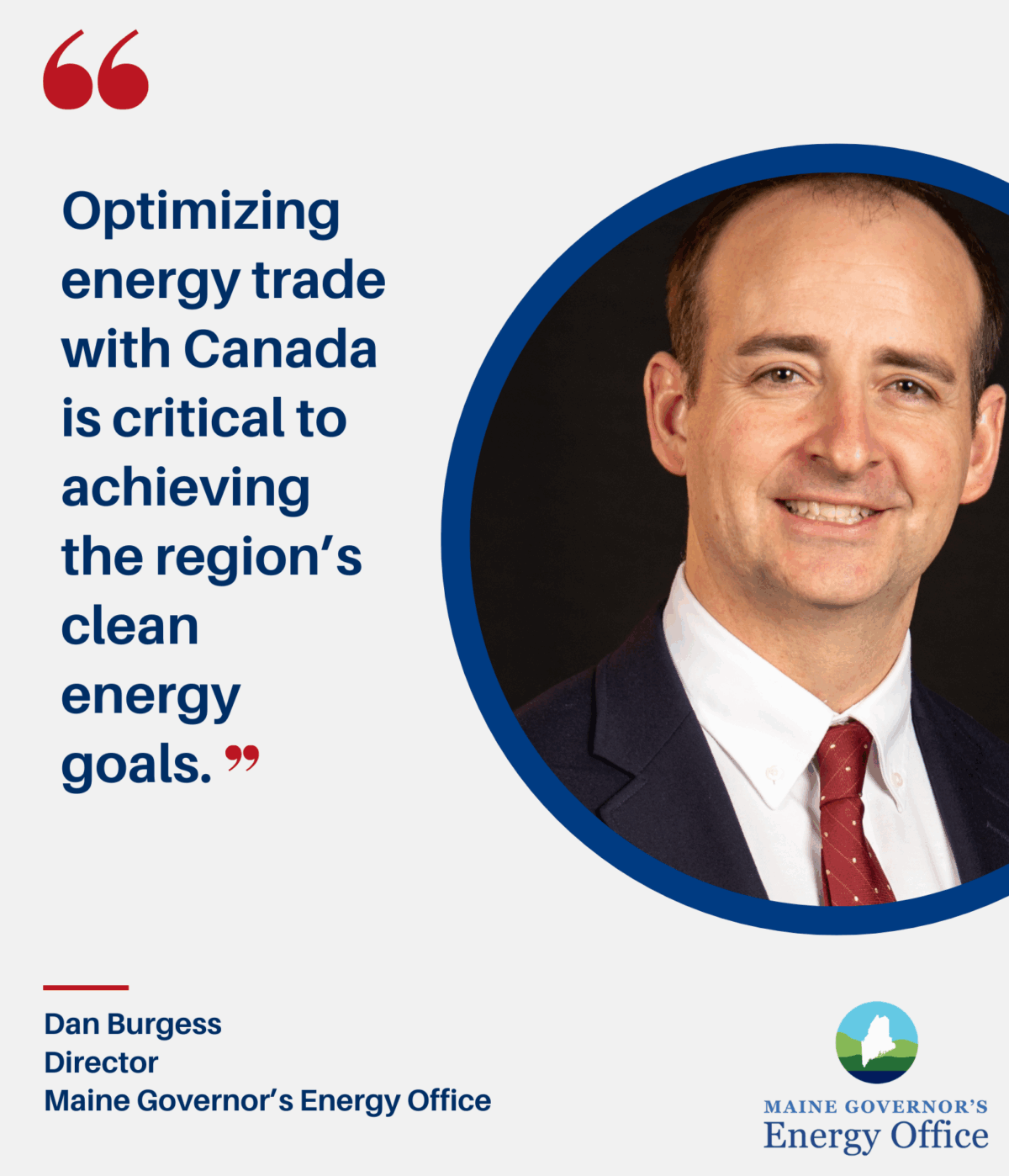High level take-aways from a panel discussion featuring New England state representatives.
Commentary by Michelle Robichaud, President, Atlantica Centre for Energy.
At the 2025 Smart Energy Event, I had the pleasure of hosting a dynamic panel discussion exploring how evolving U.S. state and federal policies are shaping the future of clean energy — particularly in New England — and the critical opportunities for deeper cross-border collaboration with Atlantic Canada.
Opening the session, Carolyn Dykema of the Acadia Center highlighted the importance of strategic engagement in advancing a clean energy future with the Northeast Grid Planning Forum (NGPF). The Forum is meant to encourage discussion around the potential benefits of increased grid coordination.
We were pleased to welcome respected panelists Joe Curtatone (President, Alliance for Climate Transition), Jason Marshall (Deputy Secretary, Massachusetts Executive Office of Energy & Environmental Affairs), and Dan Burgess (Director, Maine Governor’s Energy Office).
Taking note of themes during the discussion, the panelists highlighted the urgent need for long-term, regional planning to support affordability, reliability, and infrastructure development.
It was suggested by Dan Burgess that optimizing energy trade with Canada and better cooperation across state, provincial and national lines is “critical to achieving the region’s clean energy goals.”

One specific example of this is the work being done at the Independent System Operator in New England with the Longer Term Transmission Planning Request for Proposal (RFP). Jason Marshall discussed the transformative nature of the process stating, “it’s the only one of its kind in the United States” and marks a new chapter in New England’s regional coordination.
Not only does this process open opportunities for Canada, perhaps there is a lesson to be learned in the Atlantic provinces around collaboration on system operation.
Doubling demand projections in ISO New England’s forecasts will require competitive procurement processes and faster development of projects such as transmission corridors between Atlantic Canada and New England.
Jason Marshall stated that GHG reduction targets now legislated at the state level are signaling to the private sector that significant opportunities to invest exist. He pointed to Massachusetts’ procurement for 1,500 MW of energy storage and offshore wind as an example of the states driving clean energy transitions independently of federal action.
“Capital follows opportunity.” – Jason Marshall
Dan Burgess shared Maine’s focus on transitioning homes from heating oil to electricity, a move requiring significant investment and collaboration. He emphasized that clean energy in Maine will also need support from evolving technologies such as hydrogen and potentially small modular reactors (SMRs) in addition to hydro from Canada.
The panel also addressed the essential role state and local governments play in decarbonization efforts, particularly when federal policies stall. Joe Curtatone underscored that municipalities are often the true leaders in driving global clean energy progress.
“The global trend to decarbonize is being led by local and municipal operations, they are the frontline of progress.” – Joe Curtatone
It is important to highlight the deep, longstanding energy interdependencies between New England and Atlantic Canada — from Labrador hydroelectric power flowing through Quebec, and critical winter natural gas supply from Saint John, to New Brunswick balancing the northern Maine grid. As both regions push towards more ambitious decarbonization goals, strengthening this cross-border relationship will be key.
When asked about the most promising opportunities for collaboration, the panelists agreed on several key points:
- Expanding transmission interconnections and regional planning is essential.
- Joint investments in offshore wind, storage, and clean technologies must be explored collaboratively.
- Shared planning efforts through bodies like the Northeast International Committee on Energy (NICE) provides a mechanism to formalize the discussions.
- Collaboration on policies and cost-sharing frameworks to lower costs and boost reliability must be explored to a greater degree.
The conversation made clear that while challenges remain — including regulatory complexity and infrastructure gaps — sharing wins, natural resource strengths, and a history of cooperation between Atlantic Canada and New England, position both regions to lead on clean energy innovation.
At the Atlantica Centre for Energy, we know the work ahead will take vision, collaboration and, likely, a need to get creative about how we navigate the complexity of policies and politics. We should also not forget the prosperity that our cross-border relationship has enabled through energy partnerships for many, many years.
For more information, visit:
- New England Governors and Eastern Canadian Premiers’ Northeast International Committee on Energy
- ISO New England Longer Term Transmission Studies
- Maine Energy Plan
- Northeast Grid Planning Forum
- Massachusetts Clean Energy and Climate Plan for 2025 and 2030
- Alliance for Climate Transition Municipal Leadership Resources
Atlantica Centre for Energy
Atlantica Centre for Energy provides a unique meeting ground for industry, government, the education and research sectors, and the community at large to foster partnerships and proactively engage in energy-related issues. As the voice of energy in Atlantic Canada, the Centre’s membership represents some of the largest employers, energy producers, distributors, and consumers in the region.

